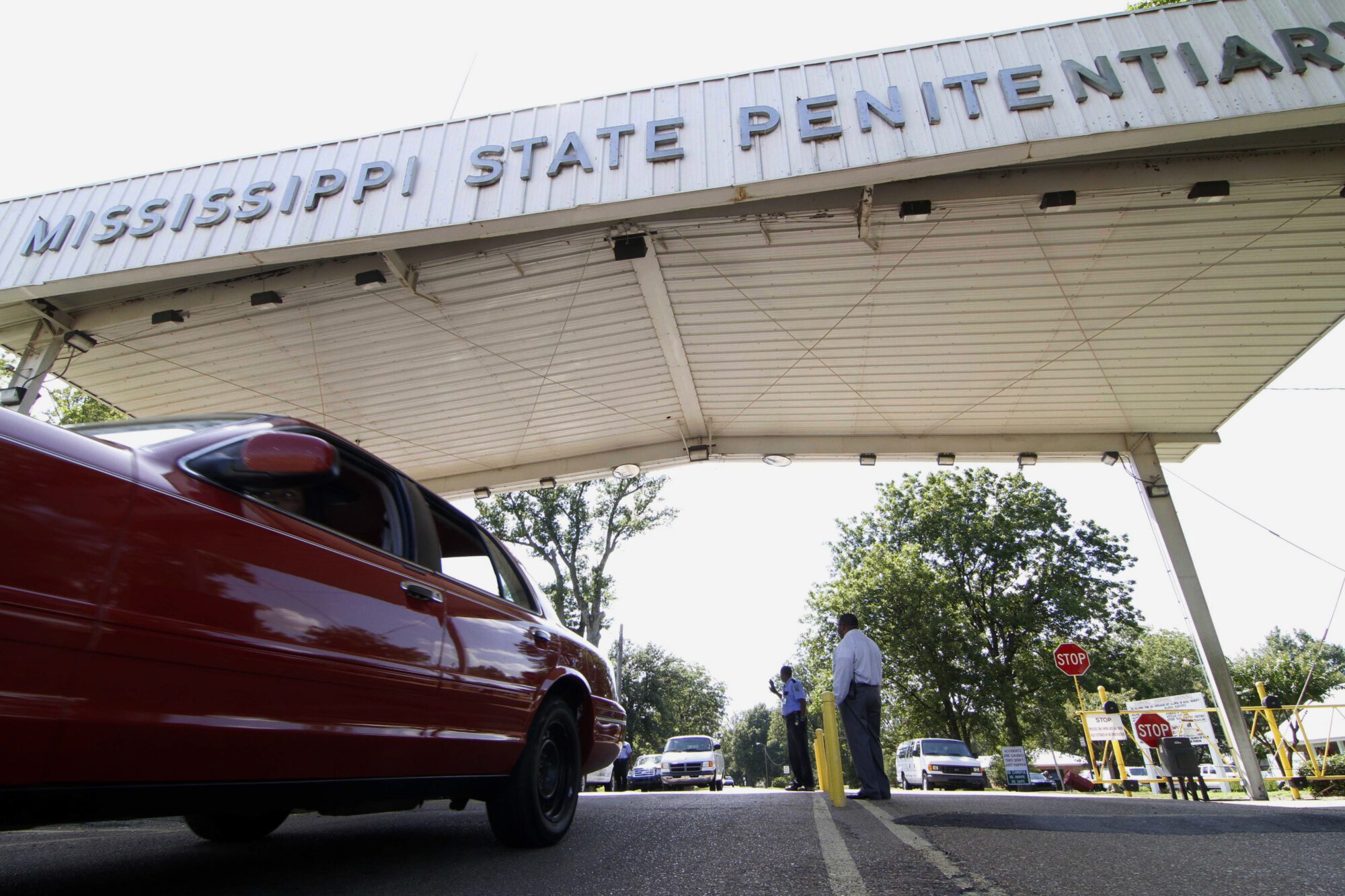This article first appeared on the Magnolia Tribune.

FILE – In this July 21, 2010, photo, employees leave the front gate of the Mississippi State Penitentiary in Parchman, Miss. An inmate at the Mississippi prison that was a focus of recent deadly unrest was found hanging in his cell by two corrections officers over the weekend and pronounced dead, a coroner said Sunday, Jan. 19, 2020. (AP Photo/Rogelio V. Solis, File)
- Notification will only be required in cases that involve violent crimes. The bill has been sent to the Governor.
A bill is heading to the Governor’s desk that, if signed, will ensure victims and those involved in the arrest and conviction of an inmate in Mississippi will be notified that they are being considered for parole.
HB 844, authored by State Rep. Becky Currie (R), ensures the victim, attorney general, district attorney involved in the prosecution of the case, the defense attorney, chief of police or sheriff of the department involved in the arrest, and “the judge who presided over the case” are notified on parole proceedings.


In the event that the victim is no longer alive, their family will be notified. If the DA, judge, sheriff, chief of police, and defense attorney are no longer serving in that capacity or alive, the person currently in that role will be notified.
Notification would be made at least 30 days prior to the parole hearing by mail, phone call and email. Rep. Currie said the bill was authored at the request of Attorney General Lynn Fitch (R).
State Senator Juan Barnett (D), chairman of the Senate Corrections Committee, said the legislation is intended to address previous instances where families were not notified that the incarcerated person was being released.
“We’ve had several controversial paroles where people have been paroled and then it’s all over the news that this person didn’t know,” Barnett described. “This eliminates all of that, so everyone knows.”
One recent example was the case of James Williams III, who was convicted in 2005 of murdering his father and stepmother in 2002. While he was given two life sentences, he was later paroled due to the U.S. Supreme Court ruling in 2021 that juveniles should be eligible for parole. Willliams was 17 at the time of the crimes. He was released in May of 2023, but the family of the victims stated they were not notified of a parole hearing, a claim Parole Board chairman Jeffery Belk has previously disputed.
Notification will only be required in cases that involve violent crimes, such as sex offenses, capital offenses, murder, human trafficking and drug trafficking.
Senator Barnett clarified that the focus is on the “worst of the worst” crimes, so minor crimes such as shoplifting will not apply.
By giving those concerned 30 days notice, it allows sufficient time to provide written or oral arguments or recommendations concerning the inmate’s potential release.
“I think it just makes everything safer,” Rep. Currie said. “I think that when there is an injured party, we need to make sure that they know if they have anything that they want to say, to come say it to the Parole Board.”
The legislation has passed out of conference and has since been unanimously approved by both the House and the Senate.
Rep. Currie is optimistic Governor Tate Reeves (R) will sign the bill into law.
This article first appeared on the Magnolia Tribune and is republished here under a Creative Commons license.
Read original article by clicking here.

